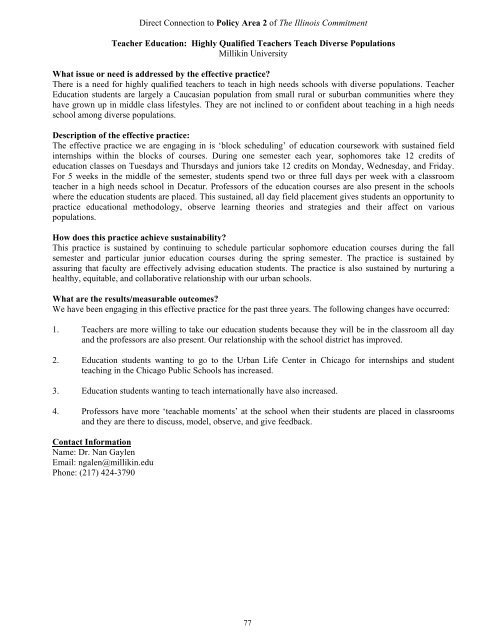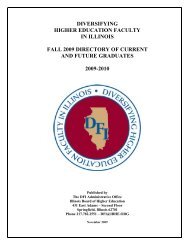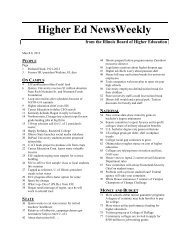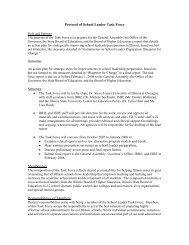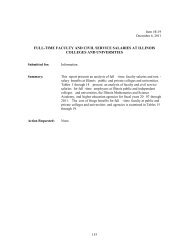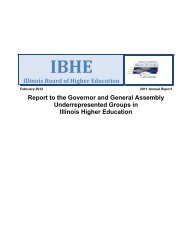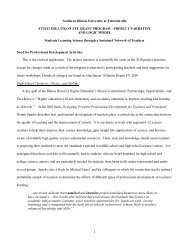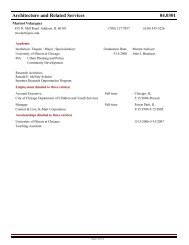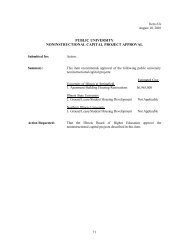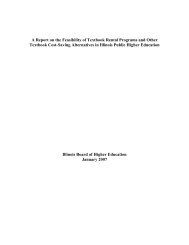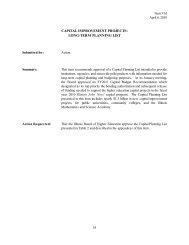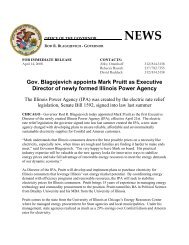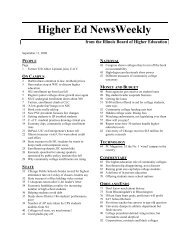Title of Effective Practice: - California Postsecondary Education ...
Title of Effective Practice: - California Postsecondary Education ...
Title of Effective Practice: - California Postsecondary Education ...
You also want an ePaper? Increase the reach of your titles
YUMPU automatically turns print PDFs into web optimized ePapers that Google loves.
Direct Connection to Policy Area 2 <strong>of</strong> The Illinois Commitment<br />
Teacher <strong>Education</strong>: Highly Qualified Teachers Teach Diverse Populations<br />
Millikin University<br />
What issue or need is addressed by the effective practice?<br />
There is a need for highly qualified teachers to teach in high needs schools with diverse populations. Teacher<br />
<strong>Education</strong> students are largely a Caucasian population from small rural or suburban communities where they<br />
have grown up in middle class lifestyles. They are not inclined to or confident about teaching in a high needs<br />
school among diverse populations.<br />
Description <strong>of</strong> the effective practice:<br />
The effective practice we are engaging in is ‘block scheduling’ <strong>of</strong> education coursework with sustained field<br />
internships within the blocks <strong>of</strong> courses. During one semester each year, sophomores take 12 credits <strong>of</strong><br />
education classes on Tuesdays and Thursdays and juniors take 12 credits on Monday, Wednesday, and Friday.<br />
For 5 weeks in the middle <strong>of</strong> the semester, students spend two or three full days per week with a classroom<br />
teacher in a high needs school in Decatur. Pr<strong>of</strong>essors <strong>of</strong> the education courses are also present in the schools<br />
where the education students are placed. This sustained, all day field placement gives students an opportunity to<br />
practice educational methodology, observe learning theories and strategies and their affect on various<br />
populations.<br />
How does this practice achieve sustainability?<br />
This practice is sustained by continuing to schedule particular sophomore education courses during the fall<br />
semester and particular junior education courses during the spring semester. The practice is sustained by<br />
assuring that faculty are effectively advising education students. The practice is also sustained by nurturing a<br />
healthy, equitable, and collaborative relationship with our urban schools.<br />
What are the results/measurable outcomes?<br />
We have been engaging in this effective practice for the past three years. The following changes have occurred:<br />
1. Teachers are more willing to take our education students because they will be in the classroom all day<br />
and the pr<strong>of</strong>essors are also present. Our relationship with the school district has improved.<br />
2. <strong>Education</strong> students wanting to go to the Urban Life Center in Chicago for internships and student<br />
teaching in the Chicago Public Schools has increased.<br />
3. <strong>Education</strong> students wanting to teach internationally have also increased.<br />
4. Pr<strong>of</strong>essors have more ‘teachable moments’ at the school when their students are placed in classrooms<br />
and they are there to discuss, model, observe, and give feedback.<br />
Contact Information<br />
Name: Dr. Nan Gaylen<br />
Email: ngalen@millikin.edu<br />
Phone: (217) 424-3790<br />
77


